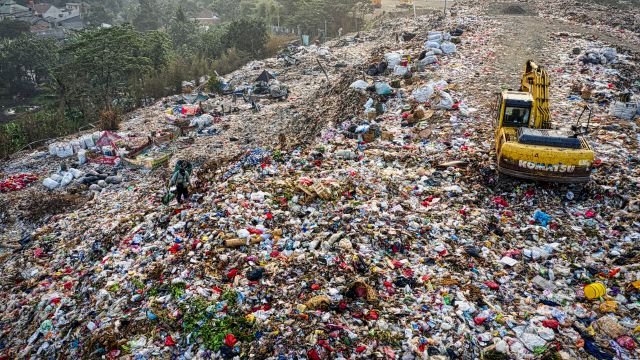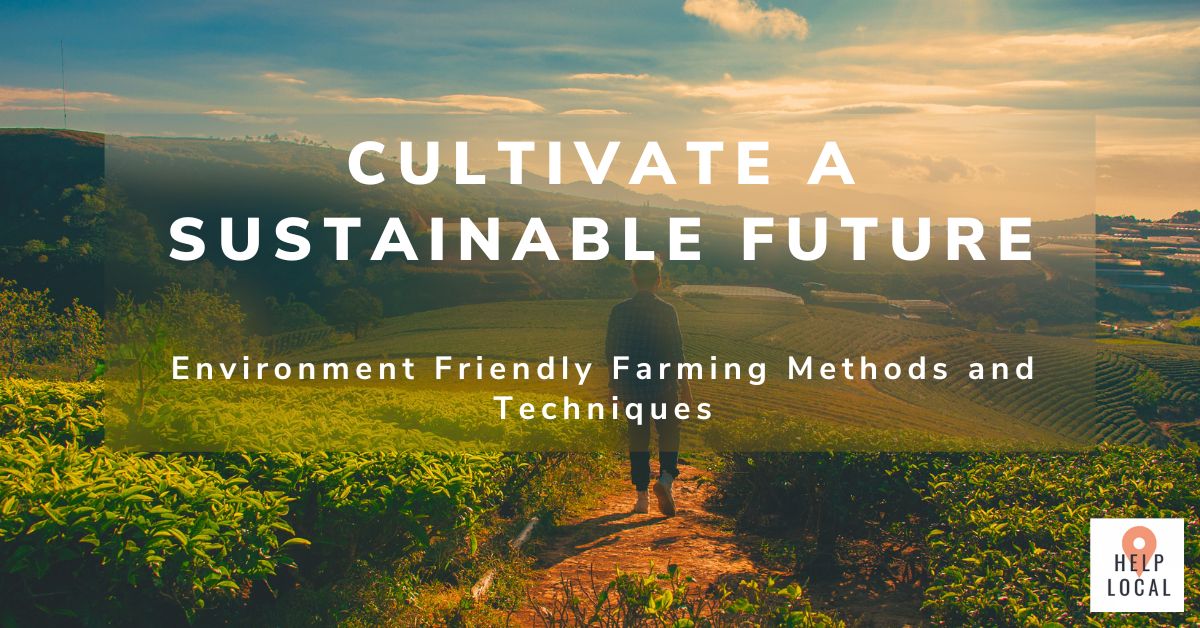In the era of global environmental challenges, the agricultural sector plays a crucial role in shaping a sustainable future. The shift towards environmentally friendly farming methods has become imperative to mitigate the impact of climate change, preserve biodiversity, and ensure long-term food security. Still, some farmers are unaware of the innovative and sustainable practices to reshape the landscape of modern agriculture. That’s why we decided to create this blog to help farmers adopt environmentally friendly farming methods.
In this blog, Helplocal – the best place to search for local NGOs in India – will help farmers in India understand the methods that promote friendly farming.
Methods of Environmentally Friendly Farming:
Below are the top methods of environmentally friendly farming to cultivate a sustainable future:
Organic Farming
Organic farming stands as a beacon of sustainable agriculture. By avoiding synthetic pesticides and fertilizers, organic farming promotes soil health and reduces the risk of water contamination. Furthermore, it emphasizes the use of natural methods such as crop rotation and companion planting to enhance biodiversity and maintain a balanced ecosystem.

Agroforestry
Agroforestry integrates trees and shrubs into traditional agricultural systems, creating a symbiotic relationship between crops and trees. This practice enhances biodiversity, improves soil fertility, sequesters carbon, and increases resilience to extreme weather events. The strategic placement of trees can also act as windbreaks, preventing soil erosion.
Recommended reading: Discover the best trees for climate change!
Precision Farming
Precision farming utilizes technology to optimize the use of resources such as water, fertilizers, and pesticides. Farmers can precisely manage irrigation and monitor crop health by employing tools like GPS-guided tractors and drones. This not only reduces the environmental impact of farming but also increases efficiency, leading to higher yields with fewer resources.
Cover Cropping
Cover cropping involves planting specific crops during non-growing seasons to cover and protect the soil. These cover crops prevent erosion, suppress weeds, and enhance soil fertility by fixing nitrogen. Plus, cover cropping promotes biodiversity and provides habitat for beneficial insects, contributing to a more resilient and balanced ecosystem.
Aquaponics
Aquaponics combines aquaculture (fish farming) with hydroponics (soilless plant cultivation). In this closed-loop system, fish waste provides nutrients for plants, and the plants filter and purify the water, which is then recirculated into the fish tanks. This symbiotic relationship minimizes the need for external fertilizers and ensures efficient resource utilization, making aquaponics an environmentally friendly and space-efficient farming method.
No-Till Farming
Conventional plowing and tilling practices can lead to soil degradation, erosion, and the release of stored carbon into the atmosphere. No-till farming minimizes soil disturbance by planting crops directly into unplowed soil, preserving its structure and reducing carbon emissions. This method helps retain moisture, enhances soil fertility, and mitigates the impact of climate change.
Recommended reading: Discover top NGOs working on water conservation in India!
Integrated Pest Management (IPM)
IPM (Integrated pest management) is a holistic approach that emphasizes biological control, cultural practices, and the targeted use of pesticides only when necessary. By promoting the natural predators of pests and implementing crop rotation, farmers can minimize the ecological impact of pest control while maintaining a healthy and resilient ecosystem.
Biodiversity Conservation
Biodiversity conservation in agriculture involves safeguarding natural habitats, cultivating diverse crop varieties, and avoiding monoculture. By preserving ecosystems within and around farms, farmers promote biodiversity, enhance pollination, and bolster natural pest control. This holistic approach fosters resilient ecosystems, sustainable farming practices, and the long-term health of both agricultural landscapes and the broader environment.
Reduced Chemical Inputs
Reducing chemical inputs in agriculture is a pivotal sustainability strategy. By minimizing reliance on synthetic fertilizers, herbicides, and pesticides, farmers mitigate environmental harm, preventing chemical runoff and soil contamination. This eco-friendly approach fosters healthier ecosystems, protects water quality, and promotes long-term soil fertility, contributing to a more sustainable and resilient agricultural system.
Energy Efficiency
Adopting energy-efficient practices, such as using renewable energy sources and optimizing machinery usage, helps reduce the carbon footprint of farming operations. Energy efficiency is integral to sustainable farming, involving the adoption of practices that minimize energy consumption and environmental impact.
Agroecology
Agroecology emphasizes the ecological relationships between different components of farming systems and leverages natural processes to enhance productivity and sustainability. At its core, agroecology seeks to leverage natural processes and biodiversity to enhance productivity, sustainability, and resilience in agricultural landscapes. This comprehensive and integrative approach not only addresses the immediate needs of food production but also considers long-term environmental, social, and economic sustainability.
Recommended reading: How to stop the plastic pollution in the ocean!
Water Conservation
Employing efficient irrigation systems, practicing rainwater harvesting, and adopting water-saving technologies contribute to sustainable water use in farming. Water conservation is a critical facet of sustainable agriculture, as the agricultural sector is a major consumer of water resources. These practices not only address the growing concern of water scarcity but also promote resource efficiency, environmental stewardship, and long-term agricultural resilience.
Waste Management
Waste management in agriculture plays a pivotal role in mitigating the environmental impact of farming activities. Adopting practices for the proper disposal of agricultural waste, recycling, and reusing materials not only addresses ecological concerns but also promotes sustainability and resource efficiency within the agricultural sector. This comprehensive approach is crucial for fostering a harmonious balance between agricultural productivity and environmental stewardship.

Environmentally Friendly Farming: Final Thoughts
As we stand at the crossroads of agricultural progress and environmental stewardship, embracing environmentally friendly farming methods becomes not just a choice but a responsibility. The practices mentioned above are not mutually exclusive; rather, they can complement each other to create a regenerative and sustainable agricultural system.
By supporting farmers who adopt these methods and advocating for policy changes that incentivize sustainable practices, we can contribute to a greener and more resilient future for our planet.
Want to empower small local NGOs and groups? Check out these pages:
Women Upliftment NGOs in India
Disaster Recovery NGOs in India
Team Helplocal is a group of Good Samaritans that believe in the power of knowledge and awareness. We create blogs, guides, and videos to help people do good and change India in a good way. Contact us on hello@helplocal.in



